German Vocabulary
Expand your German vocabulary with categorized word lists, real-life examples, and themed lessons. This category helps you master essential German words for daily life, work, travel, and exams – from A1 to B2 level.
-

German A1 Vocabulary for Immigrants – Essential Words to Know
Learn essential A1 German vocabulary for immigrants before moving to Germany. Includes key words for housing, jobs, healthcare, daily life – plus a free PDF download.
-
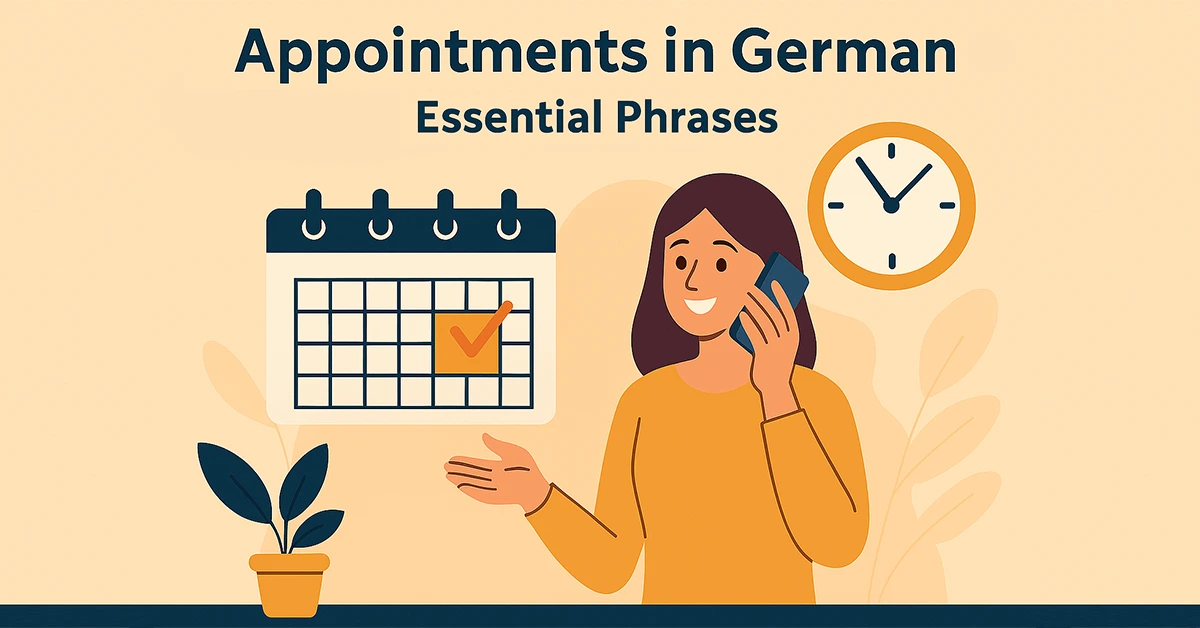
Making Appointments in German – Essential Phrases
Learn 50+ essential German phrases & real-life dialogues for making appointments. Doctor, salon, office & more. Download your free PDF cheat sheet!
-

German Supermarket Phrases You Must Know
Learn essential German supermarket phrases for your next grocery trip in Germany. Master expressions for asking prices, reading labels, and getting help, with examples.
-

How to Ask for Directions in German – Key Phrases & Examples
Learn how to ask for directions in German with essential phrases, vocabulary, and real-life dialogues. Master polite questions, landmarks, and direction words.
-
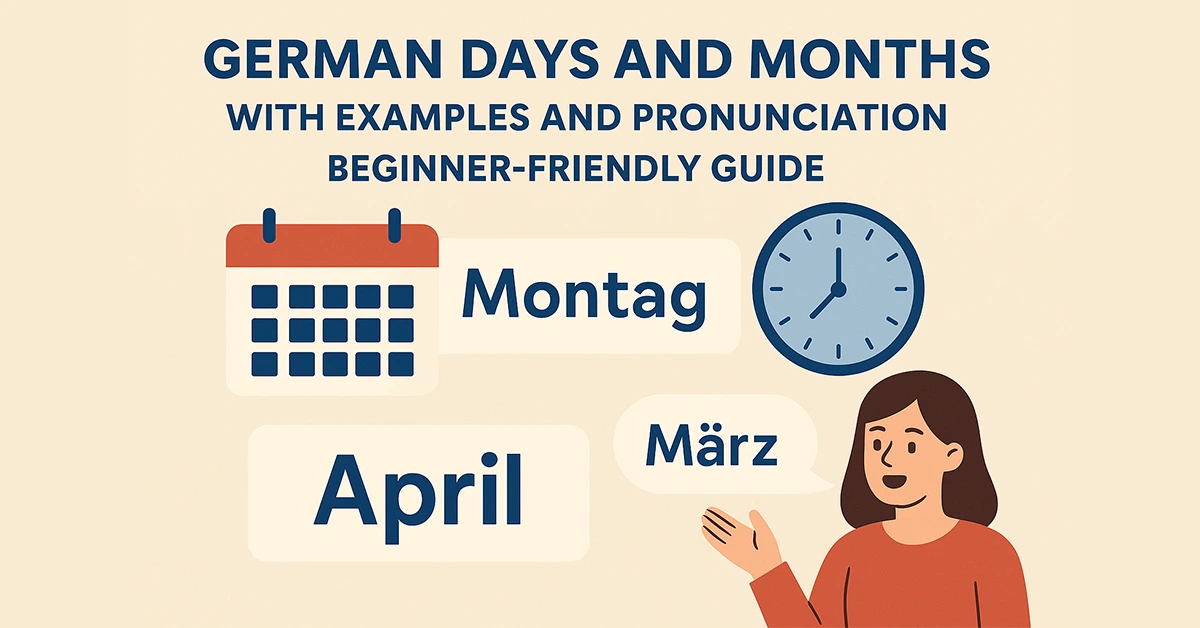
German Days and Months – Examples and Easy Pronunciation
Learn all German days of the week and months of the year with examples, English translations, and easy pronunciation. Perfect for A1-A2 beginners!
-

German Words for Everyday Objects + Free PDF
Learn essential German vocabulary for everyday objects with real-life examples, IPA pronunciation, and practical sentences. Perfect for A1-A2 learners!
-
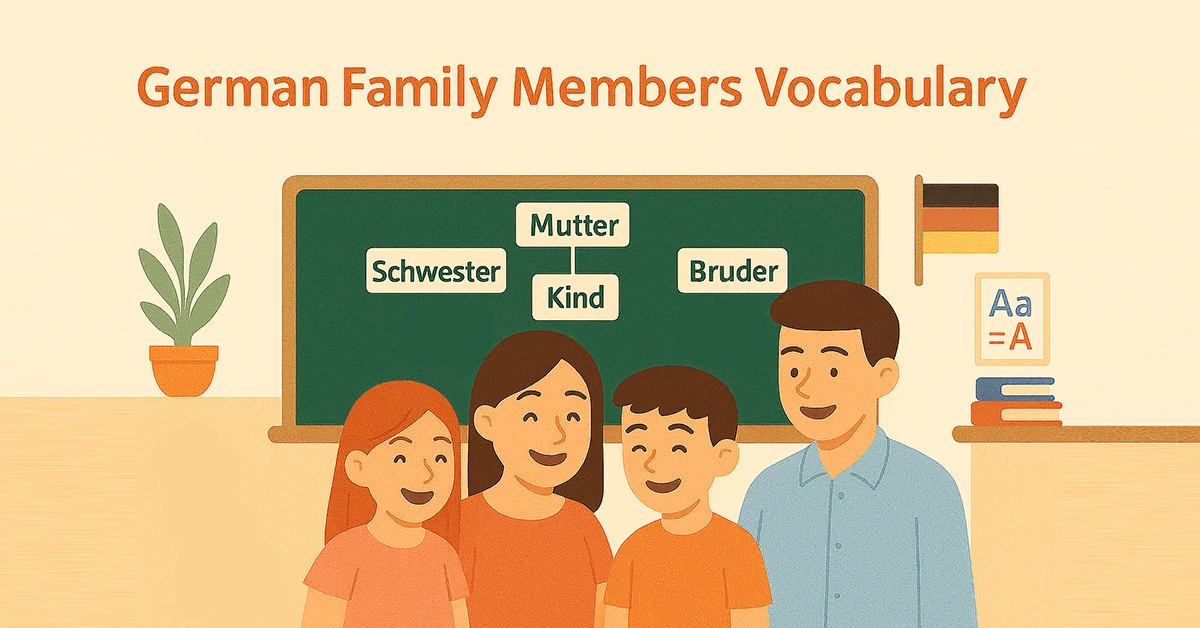
German Family Members Vocabulary – Complete A1 Guide
Learn essential German family words for A1 learners. Includes terms like Mutter, Vater, Bruder with English meanings, grammar help, pronunciation, and examples.
-
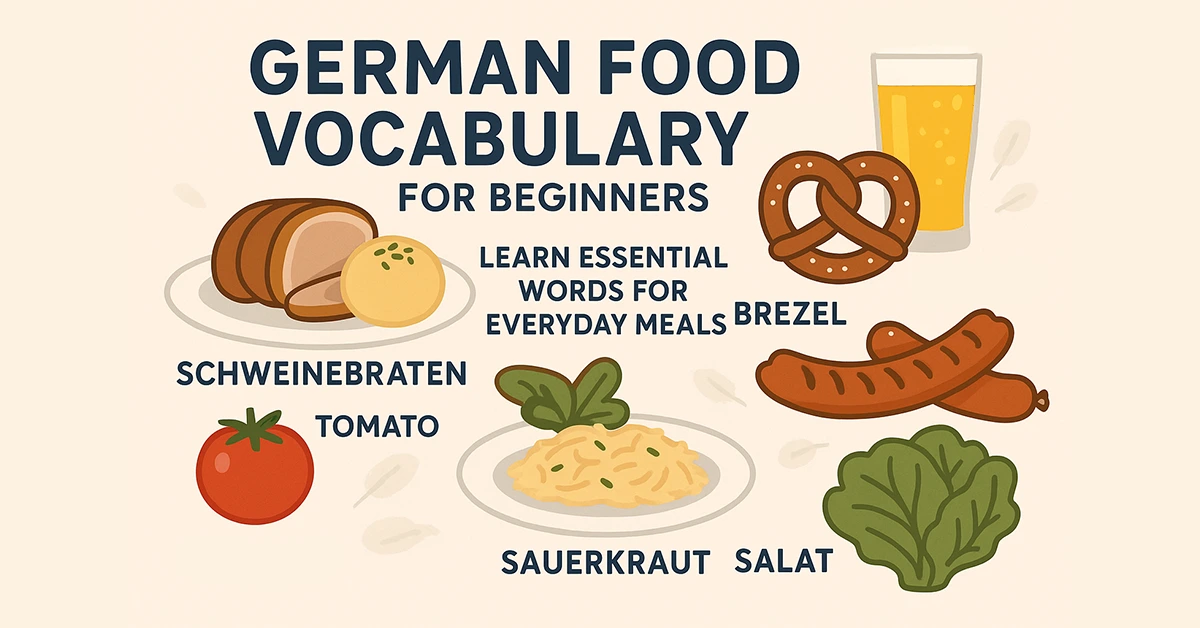
German Food Vocabulary for Beginners – Essential Everyday Words
Learn essential German food vocabulary for beginners! Discover useful words for fruits, meals, drinks & more – with meanings, pronunciation & examples.
-
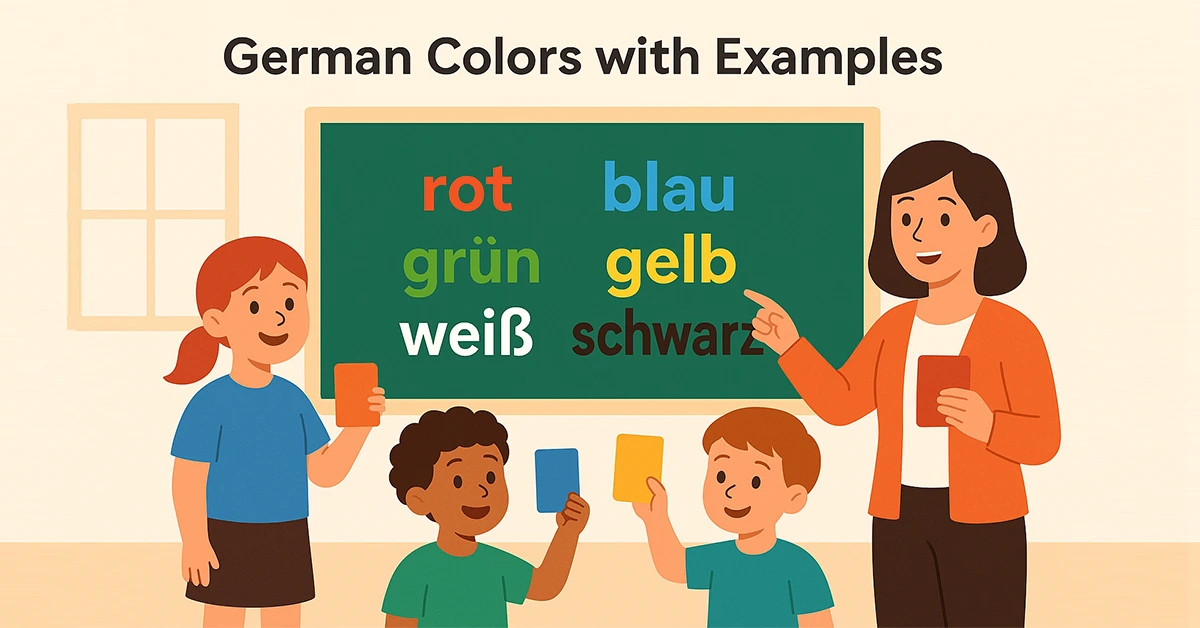
German Colors – Learn All Color Names + Free PDF Guide
Learn all German color names from basic to advanced in one place. Includes grammar tips, real-life examples, and a free PDF for easy learning.